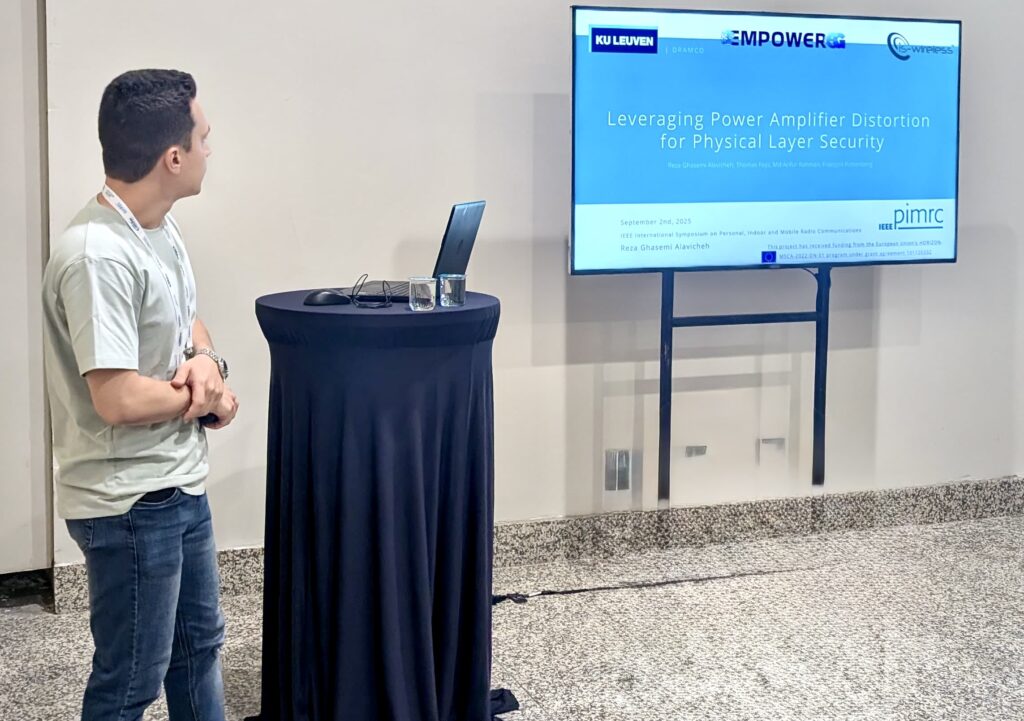Reza Ghasemi Alavicheh Presented Z3RO: Turning Hardware Distortion into a Security Advantage for 6G Networks
At IEEE PIMRC 2025 in Istanbul (1–4 September), a team of researchers presented a breakthrough in wireless security: a novel precoding strategy called Z3RO that leveraged power amplifier (PA) distortion to enhance physical layer security.
PA nonlinearity, traditionally regarded as a performance impairment, was reimagined in this work as a security enabler. Instead of relying on artificial noise injection, Z3RO suppressed PA distortion at the legitimate receiver while spatially directing it toward potential eavesdroppers. This dual effect preserved the quality of the intended link while significantly reducing the signal-to-noise-and-distortion ratio (SNDR) at unauthorized listeners.
The results were striking: at 32 dB SNR and −5 dB input back-off, Z3RO achieved up to 2.5 times higher secrecy rates compared to conventional maximum ratio transmission (MRT). Beyond boosting security, the method also improved energy efficiency, particularly in the PA saturation regime where power consumption was most favorable.
By harnessing distortion rather than fighting it, Z3RO opened new research directions in hardware-aware precoding for 6G systems, aligning security with energy efficiency in next-generation wireless networks.
The work was authored by Reza Ghasemi Alavicheh, Thomas Feys, Md Arifur Rahman, and François Rottenberg.

